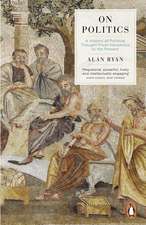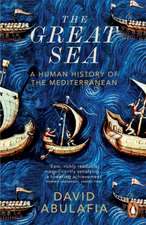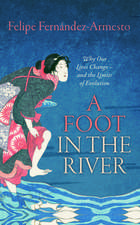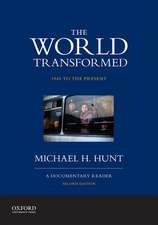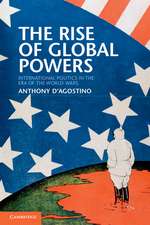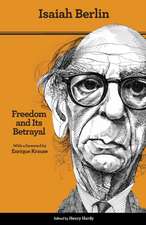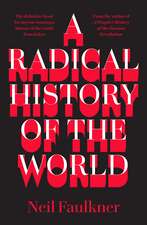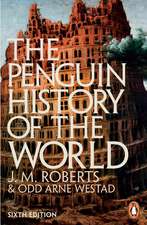Contested Boundaries – A New Pacific Northwest History
Autor DJ Jepsenen Limba Engleză Paperback – 27 mar 2017
Preț: 257.84 lei
Nou
Puncte Express: 387
Preț estimativ în valută:
49.34€ • 50.98$ • 41.04£
49.34€ • 50.98$ • 41.04£
Carte tipărită la comandă
Livrare economică 20 martie-03 aprilie
Preluare comenzi: 021 569.72.76
Specificații
ISBN-13: 9781119065548
ISBN-10: 1119065542
Pagini: 416
Dimensiuni: 173 x 241 x 22 mm
Greutate: 0.66 kg
Editura: Wiley
Locul publicării:Hoboken, United States
ISBN-10: 1119065542
Pagini: 416
Dimensiuni: 173 x 241 x 22 mm
Greutate: 0.66 kg
Editura: Wiley
Locul publicării:Hoboken, United States
Public țintă
Undergraduates at all levels in survey courses on Pacific Northwest history at community colleges, as well as four–year colleges and universities, primarily in Washington, Oregon, and IdahoCuprins
Notă biografică
David Jepsen is a former journalist and corporate marketing professional who has been writing professionally for 40 years. He holds a BA in Communications and a MA in History from the University of Washington. Since 2007, he has taught at Pierce College, the University of Washington Tacoma, and Tacoma Community College, where he is currently a member of the adjunct faculty, teaching both U.S. and Pacific Northwest history. His many writing awards include Honorable Mention for the 2006 Oregon Historical Society Joe Palmer Award for the article "Old-Fashioned Revival: Religion, Migration and a New Identity for Pacific Northwest at Mid-Twentieth Century" (2006). David Norberg has taught Pacific Northwest history in Washington for nearly 14 years and currently is a full-time member of the history faculty and chair of the Social Sciences Division at Green River Community College, in Auburn, Washington. He holds a BA in History from the University of Washington and a MA in History from Western Washington University. His article, "The Ku Klux Klan in the Valley, a 1920s Phenomenon," published by the White River Valley Museum, shed new light on the conservative backlash in the region following World War I

